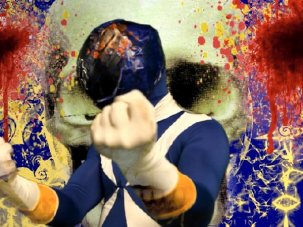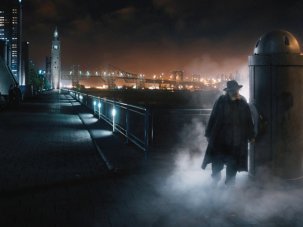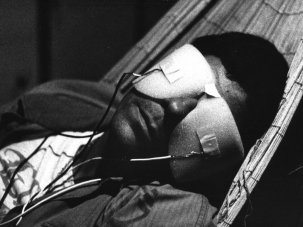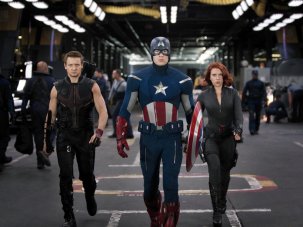Web exclusive
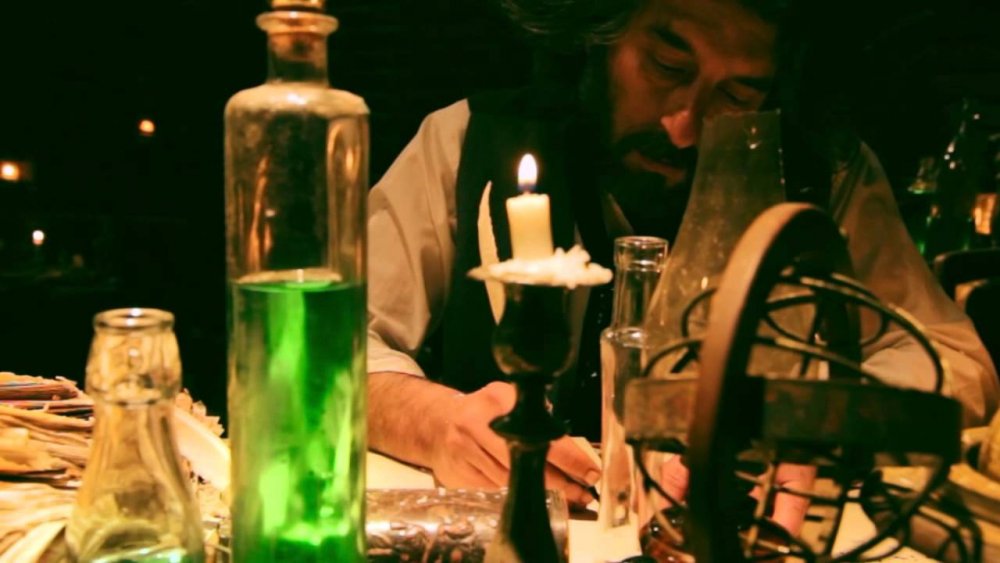
The philosopher and his demons: Paolo Gaudio’s Reveries of a Solitary Walker
Science fiction has of late been achieving stratospheric levels of attention. This year’s most lucrative tentpole titles look set to be Mad Max Fury Road and its reemergent wastelands, a new entry in the Star Wars cycle and a seemingly endless phase of collaborative or rival superhero pictures. Traditionalist mutterings about CG soullessness aside, science fiction has never looked better, and is now very much at the centre of cinema’s mass market, even if these blockbusters’ forward-looking, cutting-edge vision is tinged with a great deal of nostalgia as they keep going back to source.
29 May-5 June | venues around London, UK
Science-fiction films have also never been more respectable: late last year, the BFI devoted a ‘blockbuster’ retrospective to the genre; and this year has already seen the arrival in UK cinemas of several smaller-scale, more cerebral SF features (Coherence, Ex Machina, Predestination) that have earned themselves considerable critical acclaim.
Now in its 15th edition, Sci-Fi-London occupies a space somewhere in between. It tends to advocate for what is new, anticipating rather than revisiting theatrical releases (despite a 25th-anniversary screening of Richard Stanley’s Hardware), and it typically champions mid- to low-budget features from first-time filmmakers (although this year’s festival also offers the UK première of The Lovers from Roland Joffé, a director well established in other genres).
What’s more, Sci-Fi-London embraces the periphery of the genre’s mainstream, while still appealing to fanbase sensibilities. Where Hollywood delivers a costumed crowd of heroes spectacularly (and repeatedly) saving the world, this year’s Sci-Fi-London opens with The Death of ‘Superman Lives’: What Happened?, Jon Schnepp’s documentary on a 1998 superhero film that never was, and closes with SuperBob, Jon Drever’s action romcom rejoinder to the conventional superhero flick, featuring a hyper-English hero (from Peckham).
Dawn (Morgenrøde)
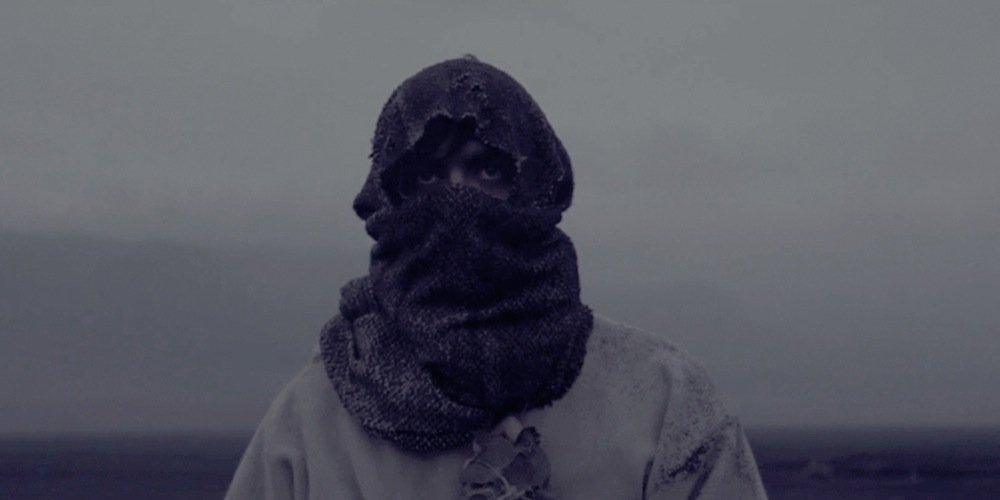
Dawn (Morgenrøde, 2014)
Perhaps the contrast is starkest when one compares the baroque, action-filled spectacle of George Miller’s latest, $150-million post-apocalyptic Mad Max extravaganza (currently playing in UK cinemas) with the very different kind of world-building in Anders Elsrud Hultgreen’s Dawn. The latter uses desaturated wide shots of Iceland’s rockscapes to conjure a grubby, barren limbo reminiscent of the medieval morasses of Ingmar Bergman’s The Seventh Seal (1957) or the backward planet of Aleksey German’s Hard to Be a God (2013).
A midway glimpse of an airplane’s skeletal fuselage offers the only hint that this bleak scenario is taking place after the rise (and fall) of modernity. In a depopulated land without clean water, one man of devout faith (Torstein Bjørklund) and another of curious skepticism (Ingar Helge Gimle) go on parallel dreamquests for transcendent truth, only to be overwhelmed by their environment and each other. Archetypal and resonant precisely for the bare simplicity of its narrative architecture, the infrequency of its dialogue and the sparse beauty of its dark mise en scène, Dawn is a moody, minimalist alternative to Miller’s mad maximalism.
The Quiet Hour
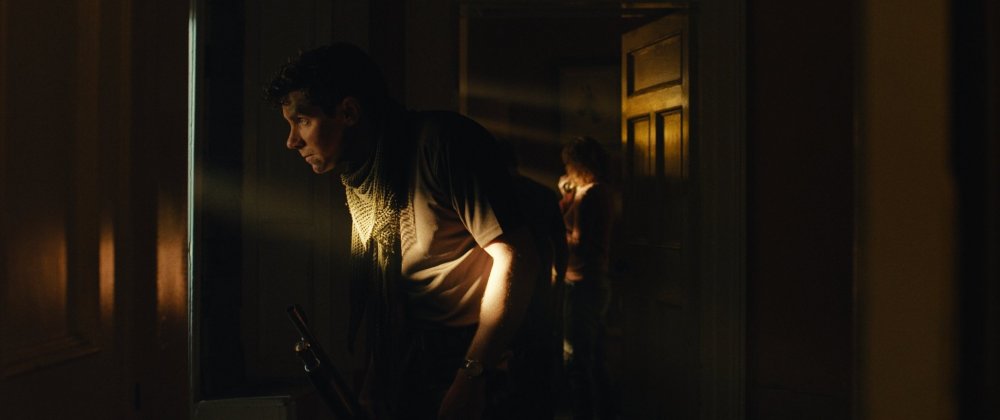
The Quiet Hour (2014)
Other films at Sci-Fi-London take similarly oblique, understated approaches to the end of the world. Perhaps the most conventional of these post-apocalyptic films is Stéphanie Joalland’s The Quiet Hour; yet even if it is set in a world – and more specifically in an England – subjugated by aliens bent on mining Earth’s natural resources and incinerating anyone who gets in the way, the extraterrestrials themselves are never seen, leaving Joalland to focus instead on the humans below, caught in their own uncivil clash of hope and despair, enlightenment and bestiality.
Man Vs.

Man Vs. (2015)
Adam Massey’s Man Vs. plays with a similar conflict, as Doug Woods (Chris Diamantopoulos) leaves behind his wife and daughter in their urban home to shoot a reality survival show alone in the Canadian wilderness, only for the skilled outdoorsman to find that he may not be the alpha predator in a rapidly escalating drama. Mixing ‘found’ and ‘objective’ footage as blithely as it blurs genres, Man Vs. starts small before revealing the place of humanity in an unforgiving universe.
Movement + Location
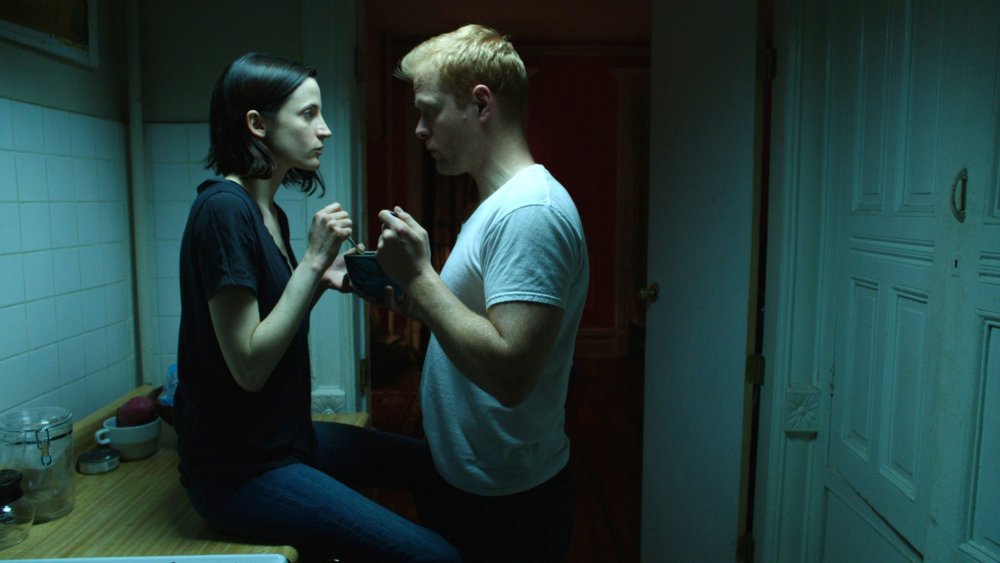
Movement + Location (2014)
Taking an altogether different tack, Alexis Boling’s Movement + Location places post-apocalyptic time travellers in contemporary, pre-apocalyptic New York. Thirty-year-old ‘Kim’ (Bodine Boling, who also wrote the screenplay) has been here for three years. Although still a stranger in a strange land, she has managed to find accommodation, a job and something of an identity for herself – and though married back in the future to a man now lost in time, she is beginning to rediscover love with policeman Rob (Brendan Griffin).
Meanwhile teenaged new arrival Rachel (Catherine Missal), homeless and hopeful, is determined to share her story with a world not ready to hear it – and soon falls in with 60-year-old down-and-out Paul (David Andrew McDonald). The drama that emerges from these broken, fugitive lives is as an allegory of exile, immigration and assimilation, while defamiliarising the things (food, water, space) that we take for granted in our own times.
The Incident (El Incidente)
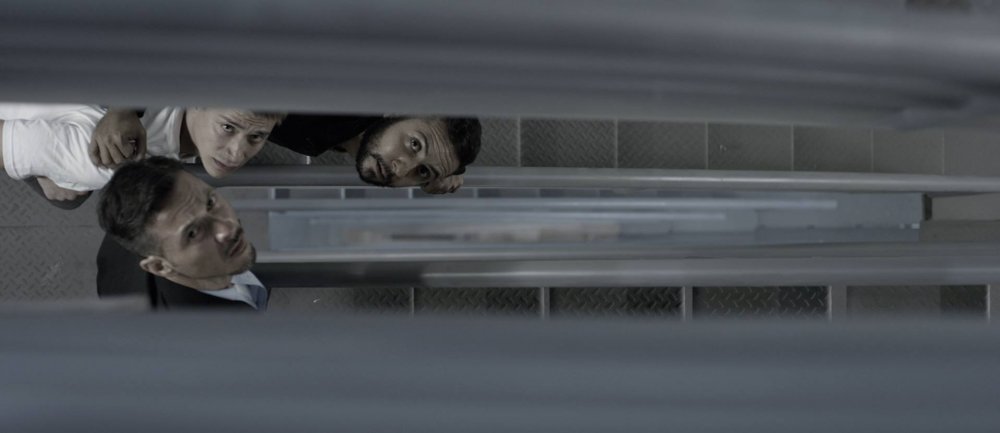
El Incidente (The Incident, 2014)
Written and directed by Mexican newcomer Isaac Ezban, The Incident concerns an apocalypse without end, as a cop and a criminal find themselves stuck on a stairwell that extends forever, while a bickering family gets caught on an infinite road. Channeling Escher, Philip K. Dick and Groundhog Day, these parallel stories, bound irrationally together in their own Möbius-strip-like interrelationship, entrap characters for decades in infernal loops that reduce and amplify all the very worst aspects of life’s ‘journey’. Narrative repetitions impose an inevitable drag on the film’s pace, but the high-concept plot offers plenty of metaphorical reflection upon the ravages of age and time: here, the eventual obliteration of youthful hope by senescence and mortality is shown creating a perpetual human legacy where ultimately we are all like the treadmill rat that one of the characters keeps in a cage.
Reveries of a Solitary Walker
(Fantasticherie di un Passeggiatore Solitario)

Reveries of a Solitary Walker (Fantasticherie di un Passeggiatore Solitario, 2014)
The end is full of desire and dread in Paolo Gaudio’s mixed-media experiment Reveries of a Solitary Walker. Taking its title from an unfinished work by Jean-Jacques Rousseau, the film interweaves parallel tales, all in search of their own ending. In one, as Theo (Lorenzo Monaco), haunted by unresolved traumas from his childhood, struggles to finish a thesis on unfinished texts, he tries to go on the walk missing from Rousseau’s text in search of the ‘Vacuitas’ (or void) that he believes can reverse unwanted pasts.
In another, told in claymation, a boy and an old man enact Rousseau’s fairytale walks through the woods. And in a third, Svankmajer-esque episode, Rousseau (Luca Lionello) himself battles the green fairy of absinthe and the ghost of his wife as he tries to confront his demons – or at least a demon – through finishing his writings. Tonally, the film is all over the place, and overplays its own quirkiness to often irritating effect – but as a showcase for Gaudio’s mastery of different cinematic forms, it’s an impressive calling card. It also, appropriately enough, comes with a good ending.
Deep Dark
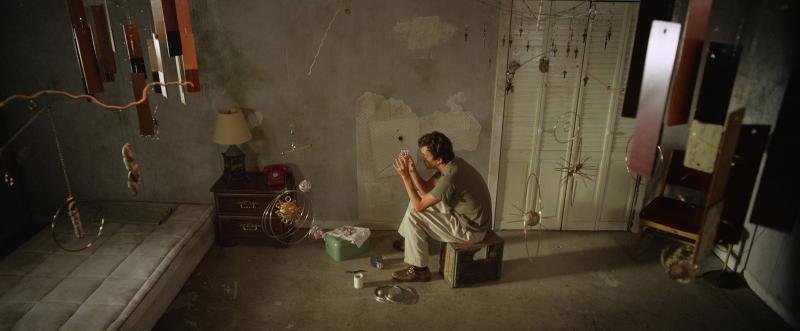
Deep Dark (2015)
Michael Medaglia’s Deep Dark also concerns the holes that artists must face – and fill – in their darkest hours of the soul. Struggling to get his mobile sculptures recognised, let alone sold, and literally bleeding for his art, Hermann Haig (Sean McGrath) discovers a talking, turned-on hole in his dingy basement digs, and is soon drawing inspiration from its crackling sexual energy. What Hermann is entering, however, is a Faustian pact with the icky emptiness behind the wall, and from it emerges a strange monster movie about the creative process (think Eraserhead or Barton Fink), as well as a hit-and-miss satire of that sweet spot where art pushes hard against commerce.
Liza, the Fox-Fairy
(Liza, a rókatündér)
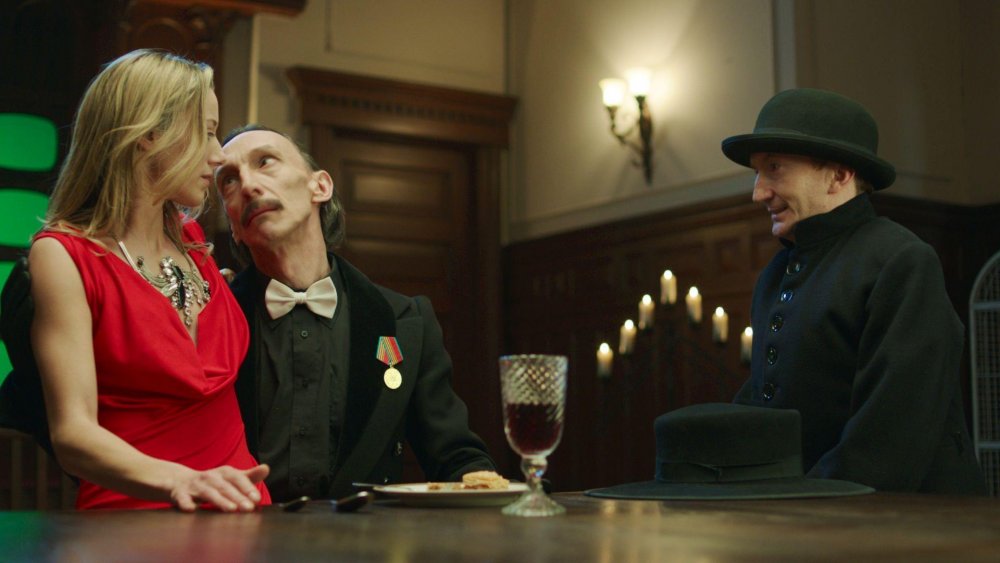
Liza, the Fox-Fairy (Liza, a rókatündér, 2015)
In the absence of any science or even space opera, evidently what suffices to qualify films like Reveries… and Deep Dark for entry to Sci-Fi-London’s broad church is merely their surreal fantasy and flashes of whimsy. The same qualities also characterise one of my favourite titles of the festival, Károly Ujj Mészarós’s Liza, the Fox-Fairy – although it does feature a brief episode with an astronaut too.
Liza (Monika Balsai) is a 30-year-old Japanophile nurse living in the neglected apartment she has inherited from a former employer. While staving off her loneliness with the oft-visiting ghost of a long-dead Japanese crooner named Tomy Tani (David Sakurai), Liza is looking for love. If the 1950s stylings, the colourful yet muted visual palette, the focus on a young woman and the quirk-heavy romanticism all advertise the heavy influence of Jean-Pierre Jeunet’s Amélie (2001), an opening sequence in medias res reveals the high body count to come, pointing to the altogether darker comedy of Jeunet and Marco Caro’s earlier post-apocalyptic comedy Delicatessen (1991).
Each and every (grotesque) suitor by whom Liza is courted, or even so much as ogled, ends up stone cold dead, leading her to believe that she has transformed into a deadly ‘fox-fairy’ of Japanese folklore. A different, if equally bizarre, explanation will eventually emerge for this proliferation of corpses, but as Zoltán Zászlós (Szabolcs Bede-Fazekas), an accident-prone policeman from the provinces who alone proves able to survive Liza’s charms, grows convinced of her innocence, love and death become the strangest of bedfellows in this riotously kooky tale.
Closer to God
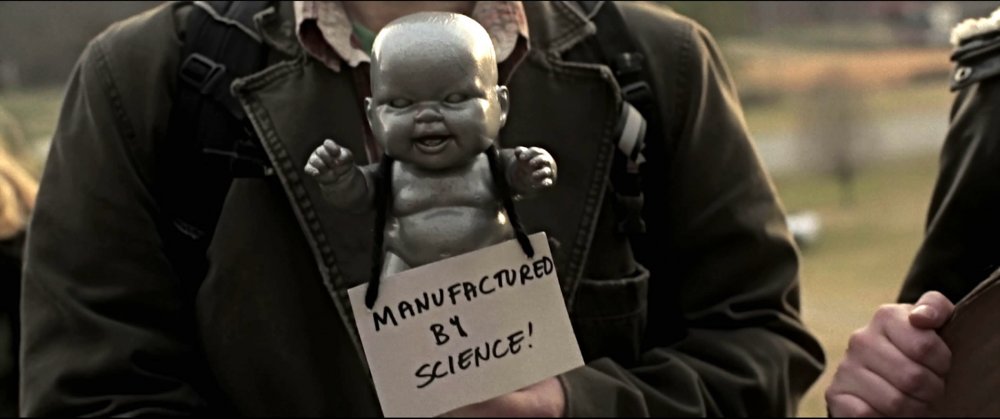
Closer to God (2014)
My other two favourite films of the festival take the more conventional SF template of an overreaching scientist and his hubristic work, and apply it to very contemporary anxieties about the place of humanity amidst rapid technological advance.
In Billy Senese’s Closer to God, middle-aged geneticist Victor (Jeremy Childs) engineers the first officially recognised human clone, then, beleaguered by vocal protesters and a prying media, retreats to his gated country mansion with baby Elizabeth and a small staff in tow. Hands-on with a test tube but aloof with people (including his wife and older child), Victor harbours a secret that is the living proof of both his own humanity and his monstrousness – a secret that is about to bring catastrophe upon the family home. This modern spin on Frankenstein (note the protagonist’s forename) openly wears its influences (especially David Cronenberg’s The Brood), but mutates them into something very much of the now while striking just the right tone of tragic gravitas.
Uncanny
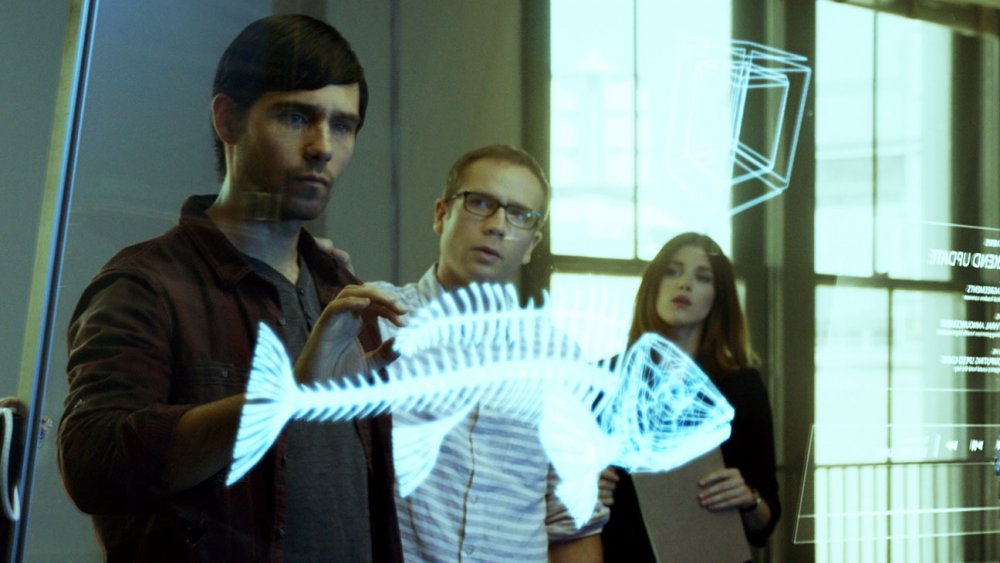
Uncanny (2015)
One of very few films at Sci-Fi-London that is not its director’s debut (Matthew Leutwyler already has six features and a telemovie to his name), this is a confident, meticulously crafted entry in the relatively new sub-genre already occupied by Caradog James’s The Machine (2013), Spike Jonze’s Her (2013) and Alex Garland’s Ex Machina – all of which encapsulate within their chamber-piece dramas the ramifications of the coming technological ‘singularity’.
Like Ex Machina, Uncanny is essentially a three-hander in which an outsider is brought in by a reclusive computer engineer to run an elaborate Turing-style test on an android to determine whether it is distinguishable from a human – yet the genders here are switched (the visitor is female, the Frankenstein figure and his creation male), making the jealous love-triangle that emerges come with all manner of discomfort for the viewer. In a fortress-like New York laboratory, technology journalist Joy (Lucy Griffiths) gradually falls for both the astonishing intellect and the obvious loneliness of arrogant, unworldly wunderkind David (Mark Webber), while David’s robotic lab assistant Adam (David Clayton Rogers), left increasingly on the sidelines, starts developing his own immature feelings for Joy.
What follows, written with sharp brilliance and performed with perfect nuance, is a complex chess game – not unlike the ones that David and Adam play every morning – where it is unclear until the end just who is the master, or indeed whether capturing or sacrificing the queen is the ‘primary objective’. As creepy and unnerving as its title suggests, Leutwyler’s film manages, in David’s words, “to create the finest constructed illusion possible”, located in the uncanny valley where humanity ends and artificial intelligence begins. It is a dead-eyed, voyeuristic glare into a future where technological advance is driven by the very worst kind of masculine imperatives.
-
The Digital Edition and Archive quick link
Log in here to your digital edition and archive subscription, take a look at the packages on offer and buy a subscription.




